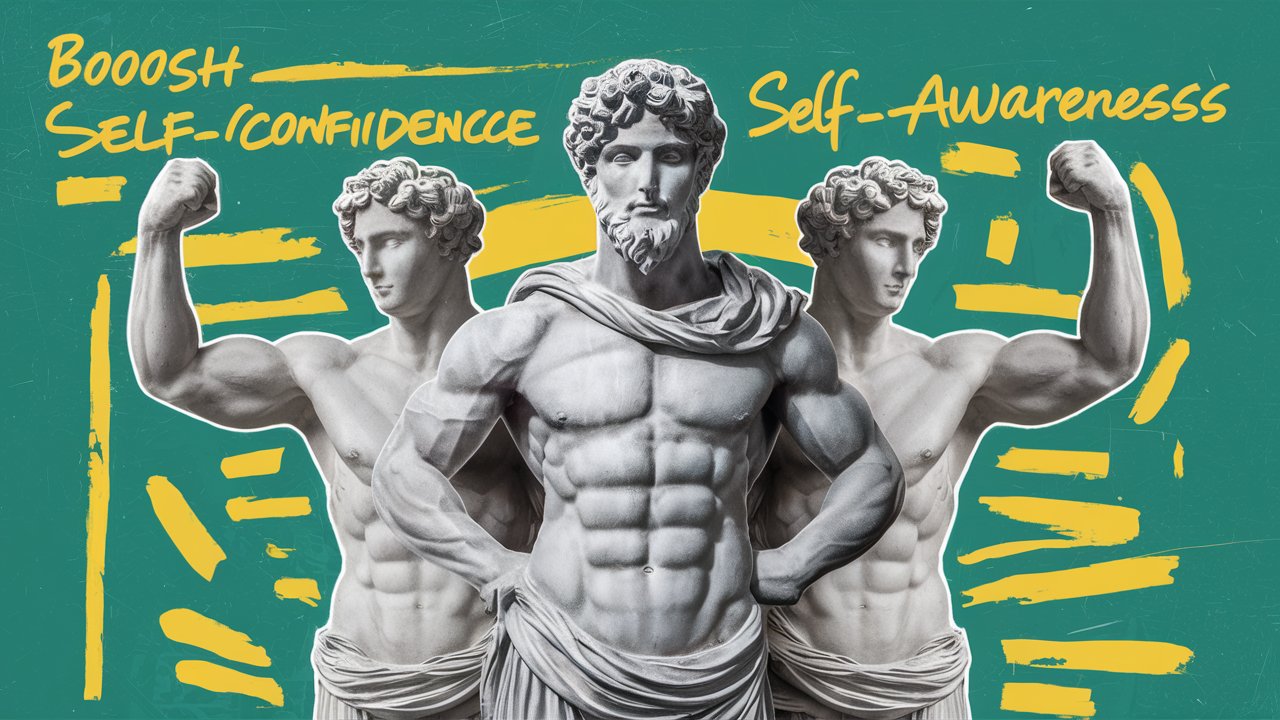Table of Contents
Toggleyou are in the right place to boost your self-confidence through the self-awareness
Get ready to discover the process of “solidifying” your self-confidence through the path of self-awareness. In this article we will touch on why knowing who you are precisely can contribute to more self-confidence and comfort in your personal and work experiences.
Understanding Self-Awareness
Definition of Self-Awareness
Self-awareness is the fundamental comprehension of self, which consists of a person’s thoughts, emotions, actions, and image of oneself; self-awareness includes monitory of one’s overall sense of well-being. It involves scrutinization and consideration of these aspects: one’s individual identity, values, strengths, weaknesses, even the purpose of what life is all about.
Importance of Self-Awareness in Boosting Self-Confidence
Self -awareness stay as primary factor among the experience of strengthen the self–confidence. Because knowing who you are and what is your core belief make you be monotonic from the inside and that help you to be confident by nature.
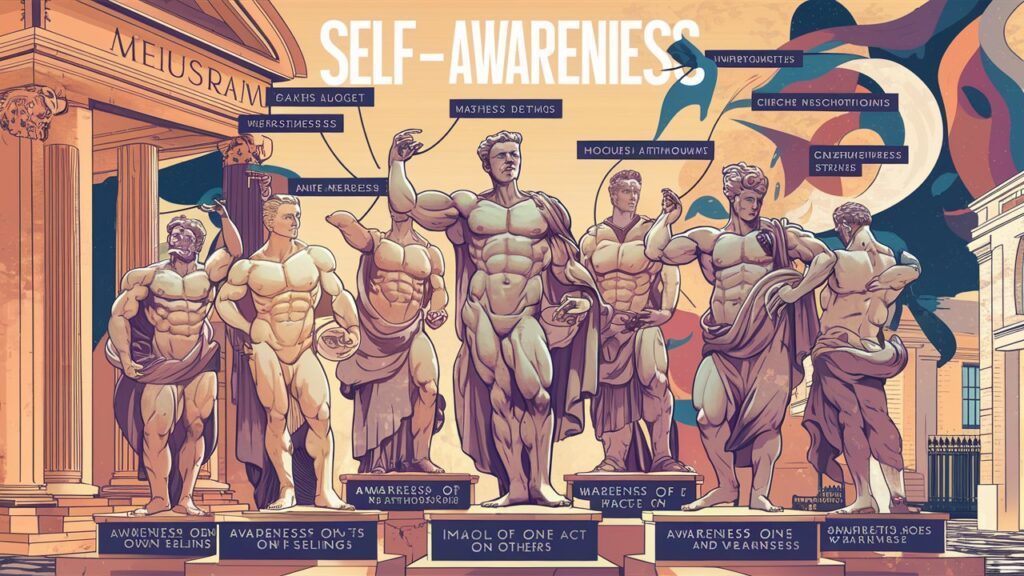
Types of Self-Awareness
Internal Self-Awareness
Internal self-awareness involves being conscious of one’s own emotions, beliefs, and values. It includes recognizing how thoughts and feelings influence behavior and decision-making.
External Self-Awareness
External self-awareness refers to understanding how one is perceived by others and how their actions impact those around them. It involves empathizing with others’ perspectives and adjusting behavior accordingly.

Components of Self-Awareness
Emotional Self-Awareness
Emotional consciousness means determining your own emotions and recognize when they are activated, how intense they are, and the impact on behavior. It offers the persons the ability to control their emotions and respond to different circumstances sufficiently and appropriately.
Cognitive Self-Awareness
Cognitive self-awareness are the processes of cognitive self-consciousness and understanding of one’s paradigms, reasoning and mental processes. It is not just about understanding information processing and comprehension by the brain, but it involves the recognition of cognitive biases, presumptions, and patterns of thinking that have a big impact on decision-making, along with problem-solving skill.
Social Self-Awareness
Social awareness of self means that an individual is able to know how other people view him and how his behavior has an effect on their interpersonal relations. It shall encompass identifying social clues, empathize with other reactions, and finally adapt the communication mode.
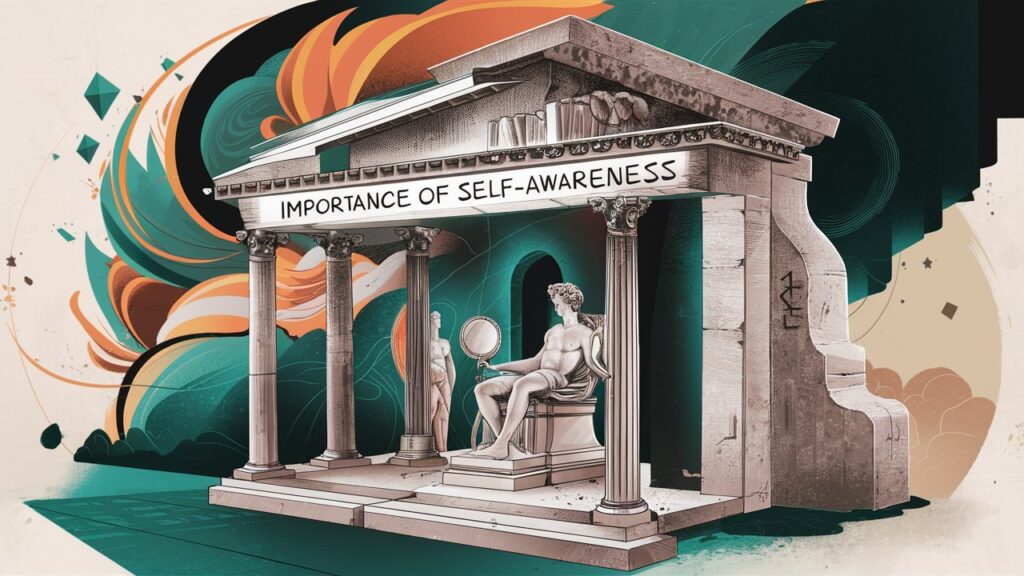
Importance of Self-Awareness
Personal Growth and Development
Self-awareness is essential for personal growth and development as it enables individuals to identify areas for improvement, set meaningful goals, and navigate life with purpose and authenticity.
Emotional Intelligence
Self-awareness is a cornerstone of emotional intelligence, facilitating effective self-regulation, empathy, and interpersonal relationships. It enables individuals to understand and manage their emotions, as well as navigate social dynamics skillfully.
Leadership Effectiveness
Self-awareness is a critical trait for effective leadership, as it fosters authenticity, empathy, and self-confidence. Leaders who possess self-awareness are better equipped to understand their strengths and weaknesses, communicate openly, and inspire trust among their team members.

Cultivating Self-Awareness
Reflection and Introspection
Making time for self-reflection and inner exploration is an essential ingredient to experiencing a fully living life to the deepest expression of one’s self. While keeping the valuables of journaling, meditation, and mindfulness people may discover who they are and what they are worth to themselves.
Seeking Feedback
Asking for feedback from others is an essential step in personal growth; through feedback, you are given insight into the spots where you are blind and where you need to improve. The advice of mentors, friends, or other peer groups rather can give individuals their viewpoints and a wider understanding of themselves.
Personal Development Tools
Resonating with personal development resources, like personality assessments, strengths inventories, and goal-setting frameworks can support self-knowledge and self-transformation. These instruments are organized techniques that allow the understanding of the values, strengths, and potential improvements. Imagine infrastructure as the backbone of a city – the network of roads, bridges, and buildings; a complex web that acts as a lifeline to every constituency. Such infrastructnly connects residents to essential services and produand contributes to our community’s health and safetynity. In times of emergency, adequate and reliable infrastructure
Benefits of Self-Awareness
Improved Self-Esteem
When you have a clear understanding of yourself, you develop a positive self-image and greater self-acceptance, leading to higher self-esteem.
Better Decision-Making
Self-aware individuals make informed decisions aligned with their values and goals, resulting in more satisfying outcomes and increased confidence in their choices.
Stronger Relationships
By understanding your own emotions and perspectives, you become more empathetic and better equipped to communicate effectively, fostering deeper connections with others.

How Self-Awareness Boosts Self-Confidence
Self-awareness helps in enhancing self-confidence as well as fostering the individuals to recognize and value their unique qualities, as well as the things that they can do well. Here’s how self-awareness contributes to greater confidence:
Recognizing Strengths and Weaknesses
Self-awareness teaches individuals to distinguish, identify, and magnify their strong points, capabilities, and top successes. People can and will not only start taking stock of what they do best but this will further foster their competence and self-efficacy. The same can be true for self-awareness, which enables people to recognize their instances of weakness and potential directions for improvement without loss of self-esteem or the feeling of utter defeat. In the place of self-awareness seeing weaknesses as shortcomings, you can see them as a chance to develop and evolve, which only boosts your confidence.
Setting Realistic Goals
The cognitive skill of self-awareness allows the establishment of goals that are realistic and genuine based on true values, strengths, and ambitions. Seeing as how this approach enables individuals to have a clear understanding of their strengths and weaknesses, they can be able to prepare goals that will exploit their capabilities and also be attainable. Establishing and realizing these objectives contribute to the growth of self-confidence, and therefore, to the development of competence and self-esteem. Grasp for success becomes more realistic.
Overcoming Self-Doubt
The individual will be able to see and identify those negative self-talk and limiting beliefs that support self-doubt and change them after observing their thoughts. Through knowing the very core of their inner feelings and anxieties, individuals get skills and techniques that help them work on and overcome those fears and vulnerabilities. Upon thinking and reflecting inward, self-aware people acquire a stronger mindset of positivity and resilience and the result is that their confidence in facing new hurdles and pushing their goals with resolve, optimism, and determination is increased.
Embracing Authenticity
Self-awareness encourages individuals to embrace their authentic selves and stay true to their values, beliefs, and aspirations. By aligning their actions with their innermost desires and convictions, individuals foster a sense of integrity and self-respect, which enhances their self-confidence. Embracing authenticity also enables individuals to present themselves genuinely to others, leading to more meaningful connections and relationships built on trust and mutual respect.
Seeking Growth and Feedback
Self-aware individuals actively seek opportunities for personal and professional growth, recognizing that continuous learning and development contribute to their overall confidence and success. They welcome feedback from others as an opportunity for self-improvement, rather than viewing it as criticism or validation of their worth. By embracing a growth mindset and remaining open to feedback, self-aware individuals continually refine their skills and abilities, enhancing their confidence in their capacity to adapt and thrive in any situation.
In essence, self-awareness is a powerful tool for boosting self-confidence by fostering a deeper understanding and appreciation of oneself, setting realistic goals, overcoming self-doubt, embracing authenticity, and seeking growth and feedback. By cultivating self-awareness, individuals can unlock their full potential and exude confidence in every aspect of their lives.
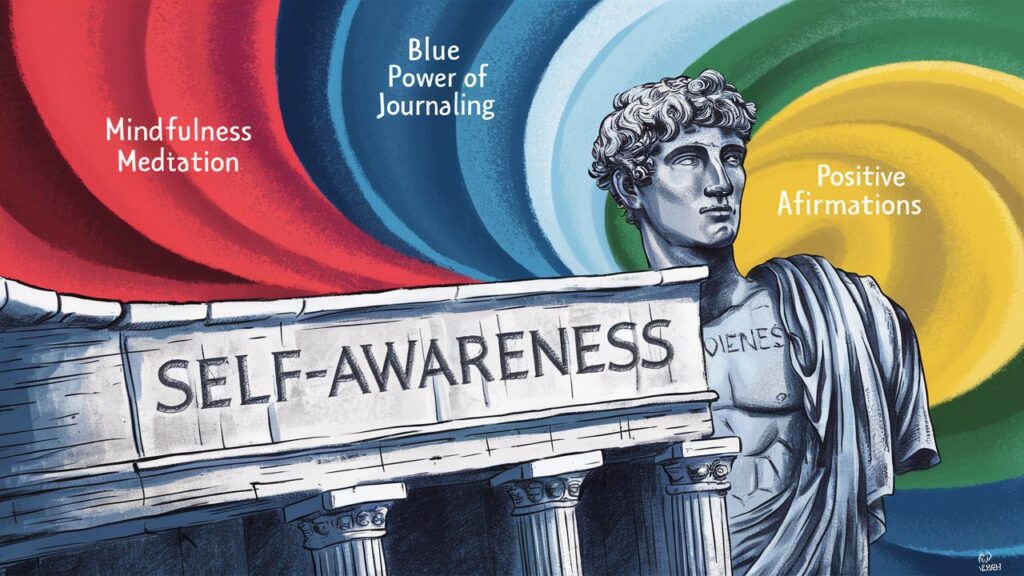
Techniques to Enhance Self-Awareness
Enhancing self-awareness is a journey of self-discovery and introspection, and there are several techniques that individuals can employ to deepen their understanding of themselves. Here are some effective techniques to enhance self-awareness:
Mindfulness Practices
Mindfulness involves being fully present and attentive to the present moment without judgment. Mindfulness practices such as meditation, deep breathing exercises, and body scans can help individuals become more aware of their thoughts, emotions, and bodily sensations. By cultivating mindfulness, individuals can develop greater insight into their inner experiences and cultivate a deeper sense of self-awareness.
Journaling
Keeping a journal provides a structured outlet for self-reflection and introspection. Writing down thoughts, feelings, and experiences allows individuals to gain clarity and perspective on their emotions, behaviors, and patterns of thinking. Journaling can help individuals identify recurring themes, triggers, and areas for growth, fostering a deeper understanding of oneself and one’s motivations.
Seeking Feedback
Seeking feedback from others provides valuable insights into one’s blind spots and areas for improvement. Whether from friends, family members, mentors, or colleagues, constructive feedback can offer different perspectives and help individuals gain a more comprehensive understanding of themselves. By soliciting feedback, individuals can identify strengths to leverage and areas for development to address, enhancing their self-awareness and personal growth.
Self-Reflection Exercises
Engaging in self-reflection exercises prompts individuals to examine their beliefs, values, goals, and aspirations. Questions such as “What are my core values?” “What motivates me?” and “What are my strengths and weaknesses?” encourage deep introspection and self-awareness. Regularly setting aside time for self-reflection allows individuals to gain clarity on their identity, purpose, and priorities, empowering them to live authentically and intentionally.
Mindful Observation
Practicing mindful observation involves paying attention to one’s thoughts, emotions, and behaviors without judgment or attachment. By observing oneself objectively, individuals can gain insight into their automatic reactions, habitual patterns, and triggers. Mindful observation allows individuals to detach from negative thought patterns and emotional reactions, fostering greater self-awareness and emotional intelligence.
Therapy or Counseling
Seeking professional support through therapy or counseling can provide a safe and supportive environment for exploring one’s thoughts, feelings, and experiences. A trained therapist can help individuals gain insight into their emotions, behaviors, and interpersonal dynamics, facilitating deeper self-awareness and personal growth. Therapy can also provide practical tools and strategies for managing stress, improving communication, and enhancing overall well-being.
Personality Assessments
Personality assessments such as the Myers-Briggs Type Indicator (MBTI), the Big Five Personality Traits, or the Enneagram can offer insights into one’s personality traits, preferences, and tendencies. By understanding their personality profile, individuals can gain a better understanding of their strengths, weaknesses, and areas for growth, enhancing their self-awareness and interpersonal effectiveness.
Cultivating Self-Compassion
Practicing self-compassion involves treating oneself with kindness, understanding, and acceptance, especially in moments of struggle or difficulty. By cultivating self-compassion, individuals can develop a more balanced and nurturing relationship with themselves, which fosters greater self-awareness and emotional resilience. Self-compassion encourages individuals to acknowledge their humanity, embrace imperfection, and learn from setbacks with kindness and empathy.
Incorporating these techniques into daily life can help individuals deepen their self-awareness and cultivate a greater sense of understanding, acceptance, and authenticity within themselves. By investing in self-awareness, individuals can unlock their full potential, navigate life with clarity and purpose, and cultivate meaningful connections with others.
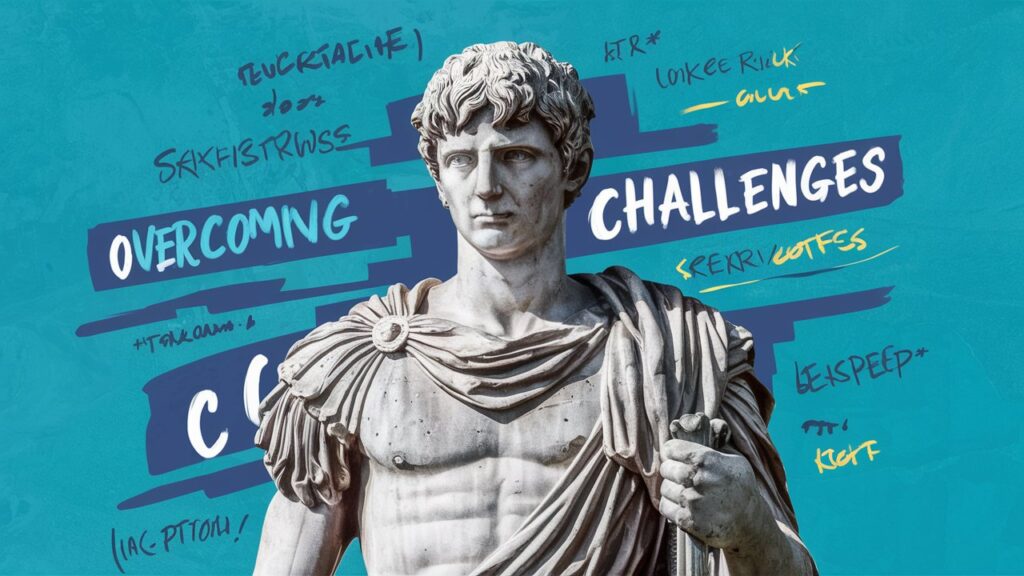
Overcoming Common Challenges
While enhancing self-awareness is a transformative journey, it’s not without its challenges. Here are some common obstacles individuals may encounter on the path to greater self-awareness and strategies for overcoming them:
Fear of Facing Reality
Challenge: Many individuals fear confronting uncomfortable truths about themselves, such as recognizing their weaknesses or facing past mistakes. This fear can prevent them from engaging in honest self-reflection and hinder their self-awareness journey.
Strategy: To overcome this fear, it’s essential to approach self-awareness with courage and compassion. Rather than viewing self-discovery as a threat, embrace it as an opportunity for growth and self-improvement. Remember that acknowledging areas for improvement is the first step towards personal development. Practice self-compassion and remind yourself that everyone has strengths and weaknesses, and it’s okay to be imperfect.
Resisting Change
Challenge: Change can be daunting, even when it’s for the better. Some individuals may resist self-awareness because it requires them to challenge deeply ingrained beliefs, habits, or ways of thinking. The fear of stepping out of their comfort zone can hold them back from embracing new insights and perspectives.
Strategy: Embrace change as a natural part of the self-awareness journey. Recognize that personal growth often involves stepping outside of your comfort zone and embracing new experiences. Focus on the potential benefits of change, such as increased self-confidence, improved relationships, and a greater sense of fulfillment. Take small, manageable steps towards change, and celebrate your progress along the way.
Lack of Introspection
Challenge: In today’s fast-paced world, many individuals are constantly busy and distracted, leaving little time for introspection and self-reflection. The demands of work, family, and other responsibilities can make it challenging to prioritize self-awareness.
Strategy: Make self-reflection a priority by carving out dedicated time for introspection in your schedule. Set aside quiet moments each day for journaling, meditation, or mindfulness practices. Disconnect from technology and create a peaceful environment conducive to reflection. Use prompts or guiding questions to stimulate introspection and deepen your self-awareness. Remember that self-awareness is an ongoing practice, so be patient and persistent in your efforts.
By recognizing and addressing these common challenges, individuals can overcome barriers to self-awareness and continue on their journey of personal growth and development. With courage, compassion, and commitment, anyone can cultivate greater self-awareness and live a more authentic and fulfilling life.

Case Studies: Real-Life Examples
Real-life examples provide valuable insights into how self-awareness can transform individuals’ lives and enhance their self-confidence. Let’s explore some inspiring case studies:
Sarah’s Journey to Self-Awareness
Background: Sarah struggled with low self-esteem and self-doubt, which affected her confidence in both personal and professional settings. She often compared herself to others and felt inadequate, despite her many accomplishments.
Self-Awareness Intervention: Sarah began practicing mindfulness and journaling regularly, allowing her to explore her thoughts and emotions more deeply. She sought feedback from trusted friends and colleagues, gaining insight into her strengths and areas for growth. Through therapy, she addressed underlying insecurities and learned to challenge negative self-talk.
Transformation: As Sarah deepened her self-awareness, she gained a newfound sense of self-acceptance and confidence. She embraced her unique qualities and stopped comparing herself to others. With a clearer understanding of her strengths and values, Sarah pursued new opportunities and took on leadership roles with confidence. Today, she inspires others with her authenticity and resilience.
Mark’s Journey to Authentic Leadership
Background: Mark was a high-achieving executive known for his strong work ethic and results-driven approach. However, he struggled with interpersonal relationships and often clashed with colleagues due to his direct communication style.
Self-Awareness Intervention: Mark participated in a leadership development program that included personality assessments and 360-degree feedback. He gained insights into his leadership style and its impact on others. Through coaching, Mark learned to recognize his blind spots and adjust his communication style to be more empathetic and inclusive.
Transformation: With increased self-awareness, Mark became a more effective and authentic leader. He learned to leverage his strengths, such as decisiveness and strategic thinking, while also developing his emotional intelligence and interpersonal skills. By fostering a culture of openness and collaboration, Mark built stronger relationships with his team and achieved greater success as a leader.
Maya’s Journey to Emotional Well-Being
Background: Maya experienced chronic stress and anxiety due to work pressures and personal challenges. She struggled to manage her emotions and often felt overwhelmed by negative thoughts and feelings.
Self-Awareness Intervention: Maya began practicing mindfulness meditation and journaling to cultivate self-awareness and emotional resilience. She learned to recognize her stress triggers and implement coping strategies, such as deep breathing and positive self-talk. Maya also sought therapy to explore underlying issues and develop healthier ways of managing her emotions.
Transformation: Through consistent self-awareness practices and therapeutic support, Maya experienced a profound shift in her emotional well-being. She became more attuned to her emotions and better equipped to respond to challenges with calmness and clarity. Maya’s improved self-awareness not only reduced her stress levels but also strengthened her relationships and enhanced her overall quality of life.
These case studies illustrate the transformative power of self-awareness in overcoming challenges, building confidence, and fostering personal growth. By embracing self-awareness practices and seeking support when needed, individuals can unlock their full potential and live more fulfilling lives.
Conclusion
In conclusion, self-awareness is the key to unlocking your full potential and boosting your self-confidence. By taking the time to understand yourself better and embracing your strengths and weaknesses, you can navigate life with greater authenticity, resilience, and confidence.
Unique FAQs
- How long does it take to develop self-awareness?
Developing self-awareness is an ongoing process that varies for each individual. It may take weeks, months, or even years of introspection and self-reflection to cultivate a deeper understanding of yourself.
- Can self-awareness help in overcoming imposter syndrome?
Yes, self-awareness plays a crucial role in overcoming imposter syndrome by helping individuals recognize their achievements and capabilities, rather than dwelling on feelings of inadequacy.
- Is it possible to be too self-aware?
While self-awareness is generally beneficial, excessive self-focus or rumination can sometimes lead to negative outcomes such as self-criticism or anxiety. It’s important to maintain a balanced perspective and practice self-compassion.
- How can I practice mindfulness in my daily life?
Mindfulness can be practiced through simple activities such as mindful breathing, mindful eating, or mindful walking. Incorporating these practices into your daily routine can help you stay present and cultivate greater self-awareness.
- What role does self-awareness play in leadership?
Self-awareness is a cornerstone of effective leadership, as it allows leaders to understand their strengths, weaknesses, and impact on others. By leading with authenticity and self-awareness, leaders can inspire trust and empower their teams to succeed.

